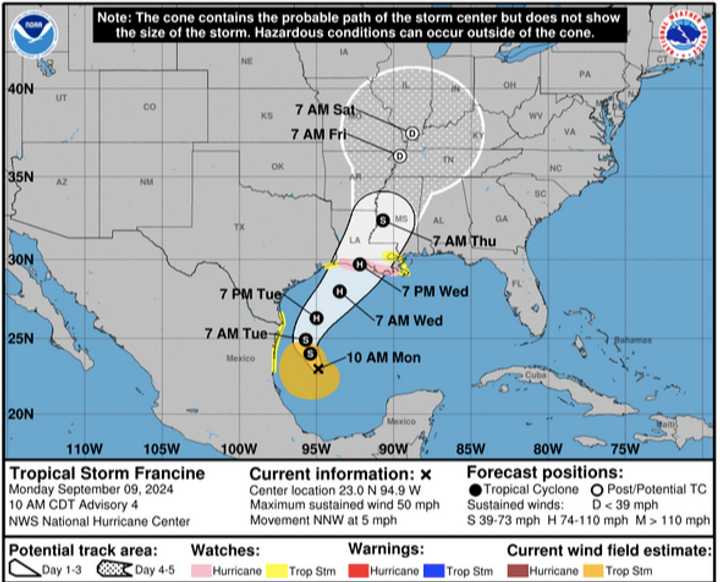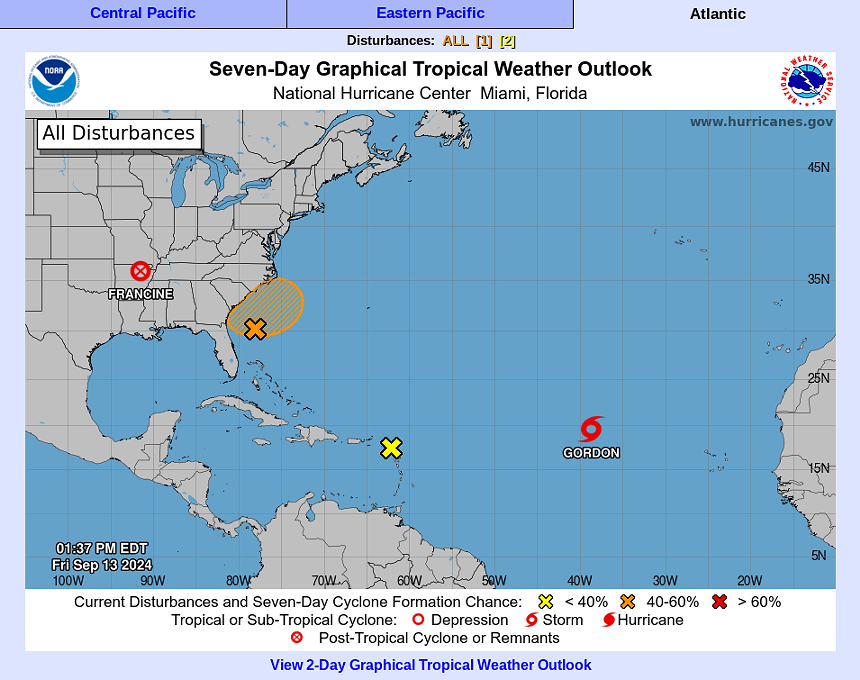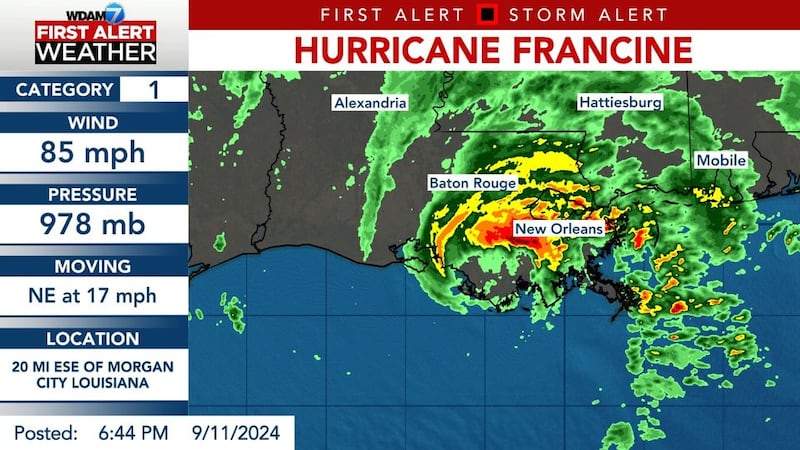Tropical Storm Francine: Louisiana Braces for Aftermath as Hurricane Downgraded
Tropical Storm Francine brought powerful winds and heavy rainfall to Louisiana after making landfall as a Category 2 hurricane earlier this week. Fortunately, the storm has since been downgraded to a tropical storm, bringing some relief to the battered region. As the state begins to assess the damage, many are breathing a sigh of relief that the worst of the storm has passed.
Chemical companies in the area were among the first to take precautions as the storm approached, shutting down operations at several plants in Louisiana to prevent any potential accidents or disasters. These measures were likely taken to prevent a catastrophe like the ones that have occurred in the past, when hurricanes have damaged facilities and resulted in hazardous chemical releases. With the storm surge and strong winds, there was a significant risk of some kind of incident happening if the chemical plants had remained operational.
Louisiana's chemical industry is a significant sector of the state's economy, and the shutdowns were likely a prudent decision to protect both the environment and human life. While the economic losses from the shutdowns may be significant, they are likely to be outweighed by the potential costs of dealing with a major disaster. As the state begins to pick up the pieces, the focus will be on assessing the damage and determining the best course of action for recovery.
Assessing the Damage
While the full extent of the damage from Tropical Storm Francine is still unclear, it is likely that the storm surge and strong winds have caused significant destruction in coastal areas. As the state begins to assess the damage, emergency responders and officials will be working tirelessly to ensure that everyone is safe and accounted for. The coming days and weeks will be critical in determining the full impact of the storm and the best course of action for recovery.
One of the challenges facing officials will be balancing the need to quickly restore power and basic services with the need to ensure that the recovery efforts are safe and sustainable. This will require a careful and coordinated effort between emergency responders, officials, and the public. As the state begins to rebuild, it will be critical to prioritize the needs of those who have been most affected by the storm.
Averting a Bigger Disaster
While the shutdowns at chemical plants in Louisiana were no doubt inconvenient and costly, they likely prevented a much bigger disaster from occurring. The risks associated with chemical plant operations during a hurricane are well-documented, and the shutdowns were a prudent decision to mitigate those risks. As the state moves forward, it will be critical to review the response to Tropical Storm Francine and identify areas for improvement.
This may include reviewing emergency protocols and procedures to ensure that they are adequate and effective. It may also involve investing in infrastructure and technology to help prevent and respond to disasters. By taking a proactive and informed approach to disaster response, Louisiana can minimize the risks associated with future storms and ensure that its residents are safe and protected.
Tropical Storm Francine may have brought significant challenges to Louisiana, but the state's response has likely prevented a much bigger disaster from occurring. As the state begins to rebuild, it will be critical to prioritize the needs of those who have been most affected and to take a proactive and informed approach to disaster response.
#Weather

















